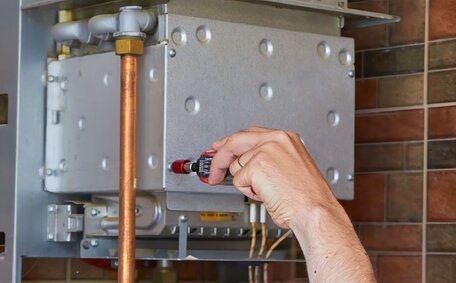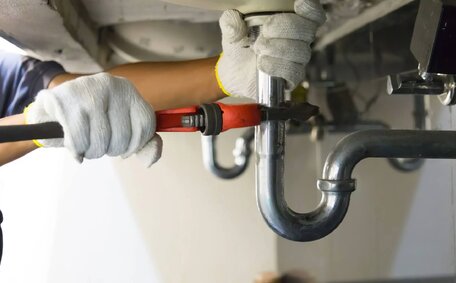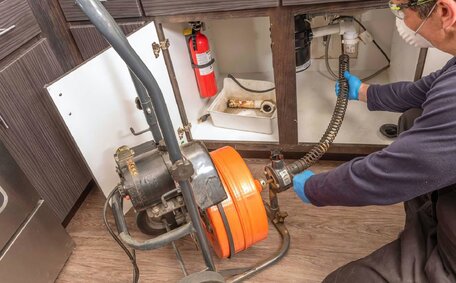Introduction: The Interconnection Between Drain Blockages and Septic Tank Problems
Your drains and septic tank issues often go hand-in-hand. Understanding the interplay between septic tank drain issues and how your drains can be linked to plumbing problems is key to resolving them effectively.
A sewage backup in your sewer drain can indicate that your septic system is failing to properly process wastewater. Conversely, if the main sewer line connected to your septic tank is malfunctioning, waste water can back up through drain pipes.
This article, for purposes only of education, will explore the sign sewer relationship between clogged drains and septic system might be in trouble. We’ll cover signs of trouble, potential causes of blockages, and how a failing septic system can affect your plumbing, plus steps you can take to get everything back in working order. You’ll also find tips to help prevent future drain and septic issues.
By the end, you’ll learn more about the signs your septic system may be giving off, such as why gurgling drains or backups of liquid waste may be happening. More importantly, you’ll discover how septic maintenance ensures effluent can flow smoothly through your entire septic system.
Recognizing Early Signs of Septic System Failure
There are several symptoms that may indicate a clogged septic system is starting to worsen the surrounding soil’s condition:
- Slow drains: If sinks, tubs, and toilets are draining sluggishly, this can point to a clogged leach field that is causing wastewater to back up.
- Gurgling sounds: Loud gurgling noises from plumbing fixtures when water is coming down the drain likely signals that sewage can be backing up in the drain pipe.
- Sewage odours: Foul, rotten egg smell could be a telltale sign that there’s blockage around your septic tank or indoors, usually indicating dangerous gases are building up in the system.
- Pooling water: Standing water, ponding, or soggy soil above the septic drain field indicates wastewater isn’t flowing or carrying water away properly to the soil.
- Lush lawn spots: In some cases, unusually green patches in your lawn near the leach field can make you suspect that effluent is no longer penetrating effectively through the soil.
These symptoms generally mean there are solids building up in the common septic tank, the field lines are clogged, or wastewater isn’t properly soaking into the leach field soil. Left unaddressed, the septic tank can keep struggling, leading to backups or overflows that are likely to materialise.
Common Causes of Drain Clogs that Can Damage Septic Tanks
There are several most common causes of drain clogs that can also wreak havoc on your septic system if left untreated:
Flushing Unsuitable Materials
Flushing anything besides human waste toilet contents and toilet paper, such as wet wipes, down the toilet can clog drains and lead to blocked or damaged septic tanks. Grease, fats, feminine hygiene products, paper towels, dental floss, and foreign objects can collect in pipes and drain fields leading to blockages.
Tree Roots
Gradually, tree roots encroaching near septic tank drain lines can penetrate pipes as though they’re looking for a treatment plant, seeking moisture and nutrients. Tree roots infiltrating the sewer line or septic tank inlet/outlet pipes can cause significant obstructions.
Using Septic-Unsafe Cleaners
Harsh chemical drain cleaners and products containing bleach or ammonia can kill the beneficial bacteria inside septic tanks, preventing them from breaking down waste and making its way into your system. This can cause solids to accumulate faster leading to impaired wastewater filtering.
Chemical cleaners can exacerbate the problems a septic system can face, and when they make their way up through your drain fields, they can contaminate soil and groundwater. It’s a good idea to protect your water supply against drain or septic issues by using physical drain snakes rather than biological cleaners.
Leaking Pipes and Tank Cracks
Cracks or loose fittings in the septic tank or underground water pipe leading to the leach field allow organic solids, grease, and sludge to escape into the drain rock and soil. This could also clog the system, decreasing its wastewater processing capacity over time.
For optimal results, we recommend an inspection of your septic tank and drain pipes for leaks at periodic intervals. We suggest tackling repairs as soon possible to help avert catastrophic field clogging and preserve your septic system’s functionality.
Solutions for Fixing Drain Blockages and Restoring Septic System Function
There are several methods that could simply clear your blocked drains and get a failing septic system working properly again:
DIY Drain Cleaning
For minor drain clogs, you can address issues at the septic tank where simple, clear solutions such as the following can be effective:
- Using a plunger or drain snake can do wonders to break up debris and clear drain line blockages
- Pouring hot water down your drain channels rapidly to dissolve stubborn grease buildup
- Using a homemade baking soda/vinegar treatment on your drains, a natural remedy your property could benefit from, to react with and dissolve clogs
Take care not to overuse chemical drain cleaner products, as they can damage your pipes and septic system. While effective at clearing blockages, The harsh ingredients can, over time, cause damage that means your pipes and septic tanks are no longer at their best.
Professional Drain Cleaning & Repairs
For recurrent clogs or more serious septic system issues like backups and overflows, contact your plumber right away. An expert can:
- Use high-pressure water jets or industrial drain augers to clear stubborn clogs
- Inspect pipes and tanks to check for cracks and root intrusions
- Install inlet filters and effluent screens to catch solids
- Repair leaks or install backup pumps to prevent future problems
A professional septic tank system assessment can also identify whether failures result from poor maintenance, pipe damage, clogged fields, or an overloaded system. Addressing underlying issues through tank pumping, system upgrades, or drainage field repairs can restore functionality.
Preventative Maintenance
To help avoid drain and problems septic systems may encounter:
- Check your septic tanks regularly every 3-5 years
- Avoid flushing any objects into your toilet to prevent a blocked septic issue
- Don’t use septic system additives or ‘starters’
- Perform an annual inspection of your tank’s inlet baffle and pipes
- Keep heavy equipment and vehicles off the drainage field
By staying vigilant, checking the outlet baffle, and having your system serviced when needed, you keep your wastewater flowing properly for years to come.
Preventative Maintenance to Sustain Drain and Septic Health
Being proactive with your local drain and septic system maintenance can prevent many future headaches. Here are some tips to put into your hands the ability to keep your drain free-flowing and your septic tank working properly for years:
Pump Septic Tank Regularly
Have your septic tank pumped out by a professional every 3-5 years. Regular Pumping out sludge facilitates wastewater flow into septic tank, maintaining the septic tank leach drains and preventing clogs in the pipes.
Inspect Pipes and Tank
Conduct annual visual checks of the septic tank and wastewater pipes for any early signs of leaks, cracks or root intrusions. Make sure to catch issues early, as this makes repairs more manageable and cost-effective.
Install Protective Devices
Consider adding an effluent filter to your septic tank outlet to catch solid waste particles before they reach the leach field; this includes lint from your washing machine. Fit hair catchers to your sink and tub to prevent drain clogs in your bathroom fixtures.
Dispose of Waste Properly
Never pour fats or harsh chemicals down drains or toilets. Use sink strainers when washing dishes to catch food scraps. Only flush human waste and toilet paper to steer clear of blocked sewer lines.
Use Septic Safe Products
Opt for septic and environmentally-friendly cleaning, laundry and personal hygiene products. Avoid antibacterial soaps and bleaches which can kill beneficial bacteria in your septic tank.
Staying proactive gives your plumbing the best chance of providing years of clog-free wastewater drainage with minimal septic system issues.
Recognizing When Professional Assistance is Required
Seeking professional help from a reputable plumber is advised if you experience any of the following:
- Raw sewage backing up into your home through sinks, tubs, or toilets
- Foul sewage odours inside your home
- Excess ponding or soggy soil around septic drain field
- Plumbing fixtures draining slower than usual
- Gurgling sounds from drains accompanied by foul odours
- Standing water around septic systems and drainage pipes
Our licenced Dulwich Hill plumbers have the expertise to diagnose complex issues in your sewage treatment and septic systems accurately. We determine underlying causes within your sewerage system using pipe cameras and pressure testing. This allows us to provide long-lasting repairs, guided by CCTV drain inspections, tailored to your specific problem.
We offer emergency sewage cleanup services, with our professionals donning rubber gloves, to decontaminate affected areas of raw sewage. Our techs, equipped with protective clothing, adhere strictly to hazardous material handling guidelines for health and environmental safety.
For non-emergency situations, our certified technicians perform comprehensive septic inspections. We check tanks, distribution boxes, pumps, syphons, pipes and soils. This helps pinpoint maintenance needs or faulty components that could be preventing efficient water flow, especially important after flood scenarios.
We also provide full septic tank systems installation and replacement services if your current tank and field are overloaded or failing. New systems are designed based on household occupancy and soil composition data.
Don’t wait until minor drain or septic issues become catastrophes; contact us at Dulwich Hill Plumbing for a free quote. Call Dulwich Hill Plumbing on 1300 349 338 or email [email protected] to schedule service.






